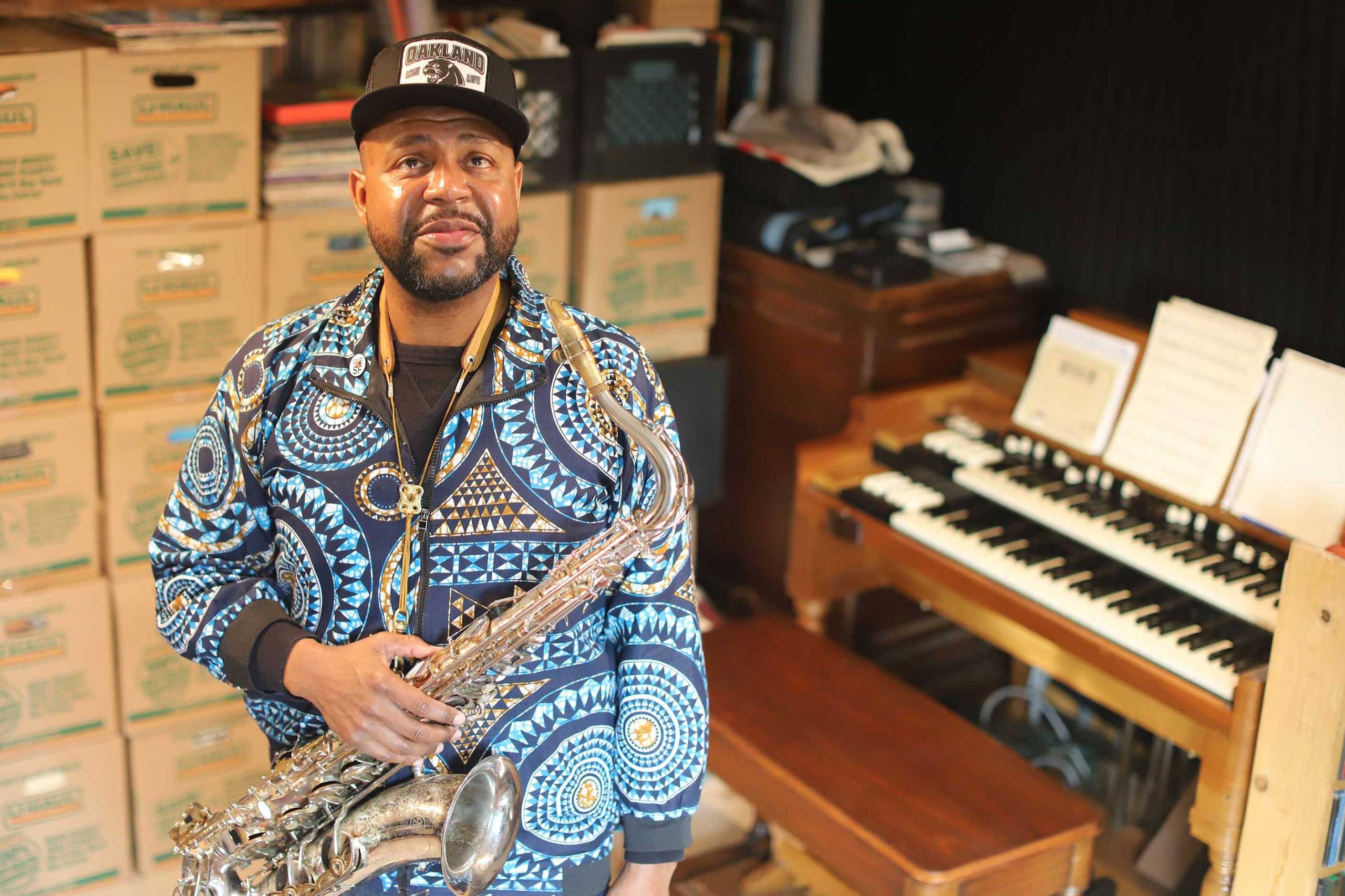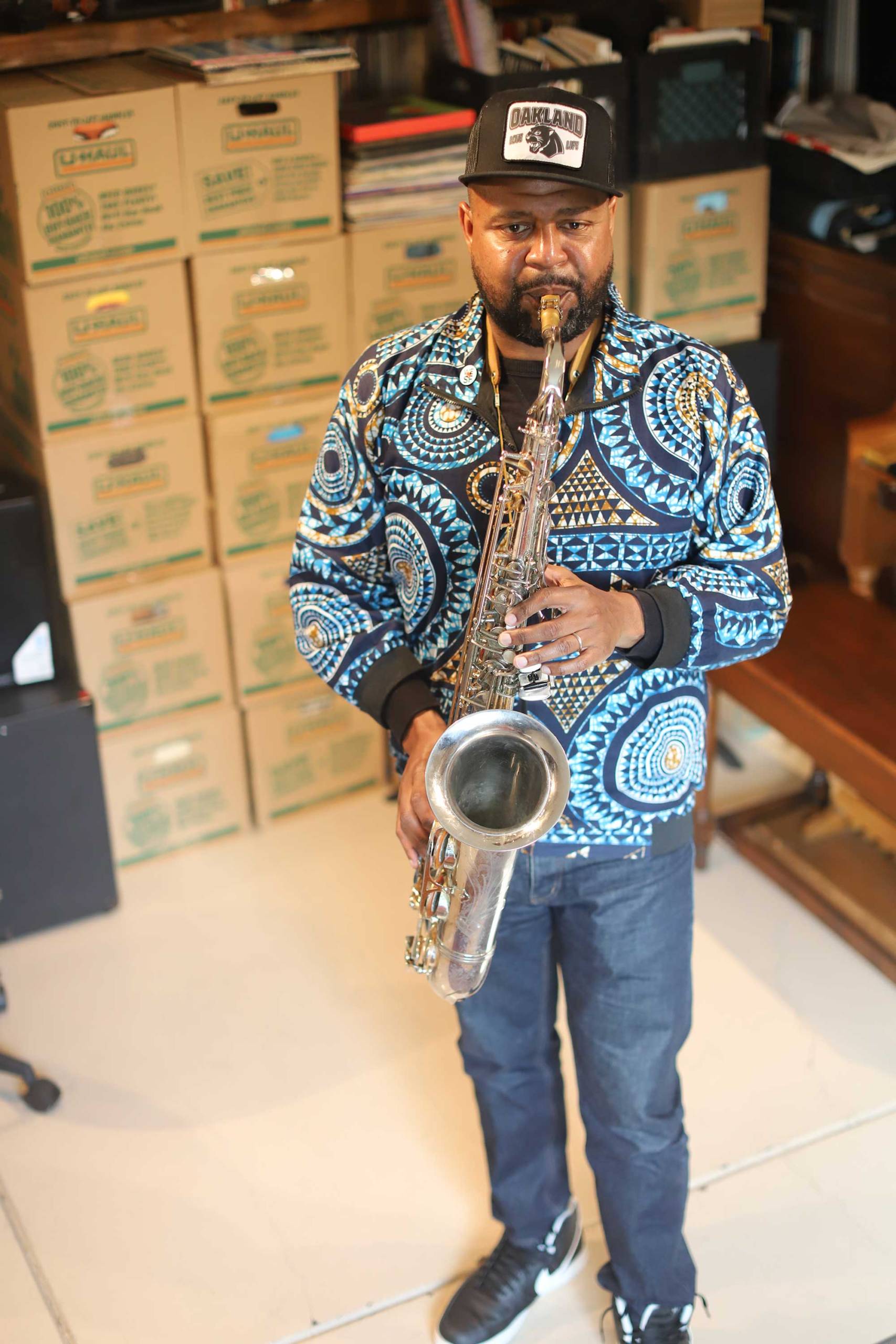Wiley’s quintet for Saturday Night to Sunday Morning includes Damien Sneed, who collaborated with Wynton Marsalis on his Abyssinian Mass, along with Camille Thurman, Amina Scott and Darrell Green. The set’s traditional spirituals run in their blood; all share a language from the church.
For Wiley, that language came early, from Star Bethel Missionary Baptist Church and Triumph Church on San Pablo Avenue in Oakland, both founded after Wiley’s family left the south during the Great Migration — and, down the street, the jam sessions at The Church of God in Christ.
Wiley rattles off the names of church folk who planted something in him: Pastor Claiborne. Mae Mae on piano. Joe Bumpus on organ. Sister Willie Mae, Mother Scott, and Mother Gray and Papa Gray, who encouraged him. Willie B., who hired him for his first gig. All contribute in their own way to this week’s shows, which Wiley hopes will provide a bit of realignment.
“You know, look at all this war. Look at all this famine. Look at all this starvation. Look at our entire world ecosystem, where it’s haves and have-nots. That is not the way of God,” Wiley says.
“But this music, it’s just something that does it. Same with Stevie Wonder’s music, or to hear Bach’s music, Beethoven’s music — it’s just something that is so pure, it takes you out of this construct that we’re in.”

Howard Wiley’s ‘Saturday Night to Sunday Morning’ runs Saturday and Sunday, Feb. 2 and 3, with four shows at SFJAZZ in San Francisco. Details here.




